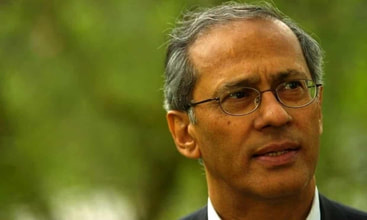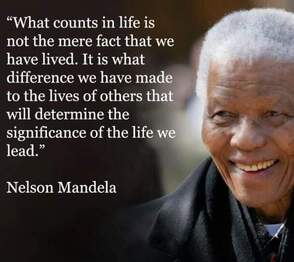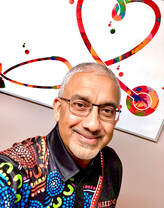by Theo Richardson-Gool 04 February 2020.
My great-uncle Raficq Abdulla, who has died aged 79, could be described as a modern-day renaissance man. A lawyer, writer and poet, he was a board member of the Muslim Law (Sharia) Council in the UK, published numerous articles and books on poetry, art and spirituality, and was involved in interfaith work between Muslims, Jews and Christians. A trustee of English PEN, he was acting president of the organisation from 2013 to 2014.
Raficq worked closely with the Egyptian scholar Zaki Badawi, a co-founder of the Three Faiths Forum, advising him on legal matters. He wrote regularly for World Faith Encounters, edited by his friend the Rev Alan Race, and also worked with Rabbi Julia Neuberger, of West London Synagogue. In 1999 Raficq was made MBE for this work.
An expert on Moghul and Safavid culture, Raficq advised the Tate gallery on Islamic art and, during the 1990s, wrote and broadcast several radio programmes on Islam for the BBC World Service. His books include Words of Paradise: Selected Poems of Rumi (2000), The Conference of the Birds: The Selected Sufi Poetry of Farid ud-Din Attar (2002), Reflecting Mercury: Dreaming Shakespeare’s Sonnets (2016) and Understanding Sharia: Islamic Law in a Globalised World (2018), co-written with Mohamed Keshavjee.
He also co-wrote two film scripts with his friend the film-maker Jamil Dehlavi, The Blood of Hussain (1980) and Born of Fire (1987).
Born in Durban, South Africa, to Moseda (nee Abraham), a doctor, and Sheik Abdulla, a businessman, Raficq was sent to the UK aged 10 to attend prep school in Hampshire, then Epsom college, Surrey. He studied jurisprudence at Brasenose College, Oxford, graduating in 1964, then was called to the bar at Middle Temple.
For the next 30 years he worked as an in-house lawyer for various companies, starting with the Beecham Group, and ending with the charity Scope, except for one year out in 1972 to study political science at Aix-en-Provence University.
In 1993 he was appointed university secretary of Kingston University, a role he held until his retirement in 2006, when he was given the honorary position of visiting fellow of the faculty for business and law.
Raficq also lectured on poetry and contemporary Muslim issues at the London School of Economics, the University of Toronto, and the Institute of Ismaili Studies in north London and its associated institutions in Dubai, Lisbon and Montreal.
At PEN, he was on the Writers in Translation committee. He also held positions on the boards of Exiled Writers Ink and the translation journal In Other Words.
In retirement Raficq enjoyed listening to music and writing poetry. He was inwardly ascetic, bookish and intelligent, and outwardly aesthetic, charming and passionate. Fundamentally interested in the other, Raficq was comfortable in himself and comfortable in the world.
In 1976 he met Marianne Rohlen, a psychotherapist from Sweden, through mutual friends, and they married in 1981. She survives him, as does their son, Adam.
As 2022 begins, there’s a new year resolution we’d like you to consider. We’d like to invite you to join more than 1.5 million people in 180 countries who have taken the step to support us financially – keeping us open to all, and fiercely independent.
In 2021, this support sustained investigative work into offshore wealth, deaths among gig-economy drivers, spyware, sexual harassment, and the holes in Australia’s environmental protection regulations. Amid the ongoing pandemic, it enabled diligent, fact-checked, authoritative journalism to thrive in an era of falsehood, sensation, hype and breathtaking misinformation and misconception.
There is much to focus on in 2022 - not least a federal election, the worsening climate emergency, and the next round in the struggle against the pandemic.
With no shareholders or billionaire owner, we can set our own agenda and provide trustworthy journalism that’s free from commercial and political influence, offering a counterweight to the spread of misinformation. When it’s never mattered more, we can investigate and challenge without fear or favour.
Unlike many others, Guardian journalism is available for everyone to read, regardless of what they can afford to pay. We do this because we believe in information equality. While others commoditise information, we seek to democratise it. Greater numbers of people can keep track of global events, understand their impact, and become inspired to take meaningful action.
If there were ever a time to join us, it is now. Every contribution, however big or small, powers our journalism and sustains our future.
https://www.theguardian.com/books/2020/feb/03/raficq-abdulla-obituary
Raficq worked closely with the Egyptian scholar Zaki Badawi, a co-founder of the Three Faiths Forum, advising him on legal matters. He wrote regularly for World Faith Encounters, edited by his friend the Rev Alan Race, and also worked with Rabbi Julia Neuberger, of West London Synagogue. In 1999 Raficq was made MBE for this work.
An expert on Moghul and Safavid culture, Raficq advised the Tate gallery on Islamic art and, during the 1990s, wrote and broadcast several radio programmes on Islam for the BBC World Service. His books include Words of Paradise: Selected Poems of Rumi (2000), The Conference of the Birds: The Selected Sufi Poetry of Farid ud-Din Attar (2002), Reflecting Mercury: Dreaming Shakespeare’s Sonnets (2016) and Understanding Sharia: Islamic Law in a Globalised World (2018), co-written with Mohamed Keshavjee.
He also co-wrote two film scripts with his friend the film-maker Jamil Dehlavi, The Blood of Hussain (1980) and Born of Fire (1987).
Born in Durban, South Africa, to Moseda (nee Abraham), a doctor, and Sheik Abdulla, a businessman, Raficq was sent to the UK aged 10 to attend prep school in Hampshire, then Epsom college, Surrey. He studied jurisprudence at Brasenose College, Oxford, graduating in 1964, then was called to the bar at Middle Temple.
For the next 30 years he worked as an in-house lawyer for various companies, starting with the Beecham Group, and ending with the charity Scope, except for one year out in 1972 to study political science at Aix-en-Provence University.
In 1993 he was appointed university secretary of Kingston University, a role he held until his retirement in 2006, when he was given the honorary position of visiting fellow of the faculty for business and law.
Raficq also lectured on poetry and contemporary Muslim issues at the London School of Economics, the University of Toronto, and the Institute of Ismaili Studies in north London and its associated institutions in Dubai, Lisbon and Montreal.
At PEN, he was on the Writers in Translation committee. He also held positions on the boards of Exiled Writers Ink and the translation journal In Other Words.
In retirement Raficq enjoyed listening to music and writing poetry. He was inwardly ascetic, bookish and intelligent, and outwardly aesthetic, charming and passionate. Fundamentally interested in the other, Raficq was comfortable in himself and comfortable in the world.
In 1976 he met Marianne Rohlen, a psychotherapist from Sweden, through mutual friends, and they married in 1981. She survives him, as does their son, Adam.
As 2022 begins, there’s a new year resolution we’d like you to consider. We’d like to invite you to join more than 1.5 million people in 180 countries who have taken the step to support us financially – keeping us open to all, and fiercely independent.
In 2021, this support sustained investigative work into offshore wealth, deaths among gig-economy drivers, spyware, sexual harassment, and the holes in Australia’s environmental protection regulations. Amid the ongoing pandemic, it enabled diligent, fact-checked, authoritative journalism to thrive in an era of falsehood, sensation, hype and breathtaking misinformation and misconception.
There is much to focus on in 2022 - not least a federal election, the worsening climate emergency, and the next round in the struggle against the pandemic.
With no shareholders or billionaire owner, we can set our own agenda and provide trustworthy journalism that’s free from commercial and political influence, offering a counterweight to the spread of misinformation. When it’s never mattered more, we can investigate and challenge without fear or favour.
Unlike many others, Guardian journalism is available for everyone to read, regardless of what they can afford to pay. We do this because we believe in information equality. While others commoditise information, we seek to democratise it. Greater numbers of people can keep track of global events, understand their impact, and become inspired to take meaningful action.
If there were ever a time to join us, it is now. Every contribution, however big or small, powers our journalism and sustains our future.
https://www.theguardian.com/books/2020/feb/03/raficq-abdulla-obituary




